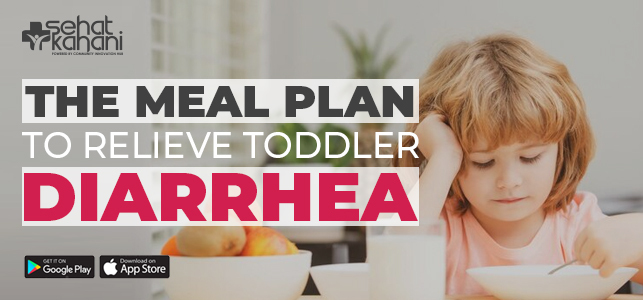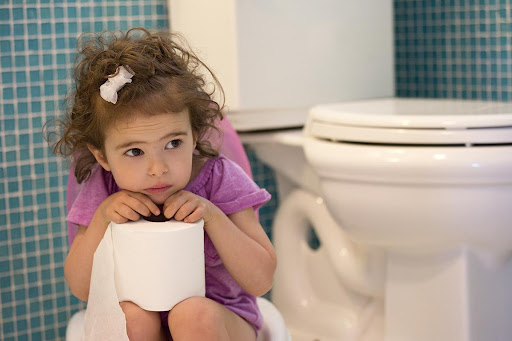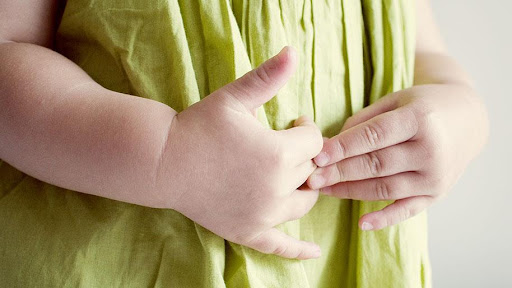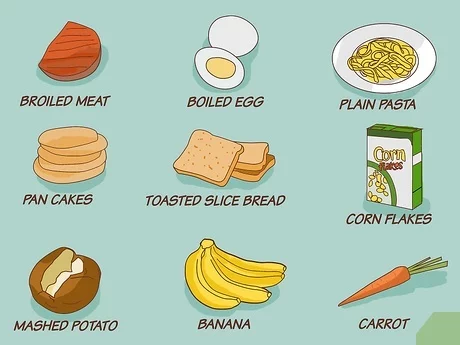
Introduction
Diarrhea is the movement of watery and loose bowels. In this condition, you visit the bathroom quite often. The common symptoms of diarrhea include urgent bowel movement, nausea, bloating, and stomach cramps. Whereas the symptoms of severe diarrhea can be fever, vomiting, bloody stools, weight loss, and dehydration. There are many ways to treat diarrhea and considering that it is a common condition in both children and adults, people often try to cure it using home remedies and various diets.
Reading this blog will equip you with the relevant knowledge about toddler diarrhea. It will also help you formulate a meal plan to cure toddler diarrhea.
What is Toddler Diarrhea?
The most prevalent cause of chronic diarrhea in toddlers and preschool-aged children is toddler diarrhea. It is also known as functional diarrhea or chronic nonspecific diarrhea of childhood. Toddler diarrhea is characterized by four or more watery or loose feces per day in children without any other symptoms. They normally have healthy bodies and good growth. Children having toddler’s diarrhea have normal body weight and their stools are free from blood.
Toddler diarrhea often appears between the ages of 6 months and 3 years, and by the time kids start elementary school, it normally goes away on its own. Various research proves that toddler diarrhea may result from consuming too many sugar-sweetened drinks, particularly those heavy in high-fructose corn syrup and sorbitol. Another major cause of toddler diarrhea is a diet low in fats.
Children who are affected by toddler diarrhea have several watery, loose bowel movements frequently throughout the course of a day. Stools may smell awful and may contain undigested food or mucus.
Also Read: Symptoms of Diarrhea: Causes, Treatment, and Preventions

How adult diarrhea differs from toddler diarrhea?
Toddler diarrhea majorly differs from adult diarrhea in terms of its cause. The causative agent of toddler diarrhea is unclear. Children having this condition have normal small intestine functionality and it absorbs the nutrients efficiently. Moreover, the colon on these children also perform its function of water absorption proficiently.
It’s believed that affected children may have an imbalance of fluid, fiber, undigested sugars, and other undigested foods that make it to the colon. This may result in more fluid (water) being retained in the colon as opposed to being absorbed by the body. Stools can become more frequent and runnier than usual in young children if there is even a minor increase in the amount of fluid left in the colon. The condition vanishes as the child develops and the colon functions more effectively. It is important to note that toddler diarrhea is not a consequence of inadequate or malabsorption. It also does not reflect any serious underlying bowel issues or food intolerance.
Conversely, adult diarrhea is mostly a result of malabsorption due to infections. It may also occur as a consequence of various food intolerances and malabsorption of food materials.
The occurrence of diarrhea in toddlers should be taken more seriously than that of adults. One of the most concerning side effects of diarrhea in children is dehydration. Moderate to severe diarrhea can result in significant fluid loss, whereas mild diarrhea typically doesn’t. Seizures, brain damage, and even death can result from severe dehydration.

An elaborate meal plan to relieve toddler diarrhea
Considering that the causes of toddler diarrhea include the imbalance of fluid, fiber, undigested sugars, and other undigested foods, it can be relieved by altering the diet. Following is an effective diet for toddlers along with all the dos and don’ts which you can utilize to ease your child’s symptoms;
Diet for toddlers with Diarrhea
In many cases of toddler diarrhea, no therapy or medication is necessary, especially if symptoms are minor. Perhaps all that is needed is reassurance that it will pass. However, in many instances, if the child adjusts specific eating and drinking habits, diarrhea will go away or become less severe. Unhealthy eating and drinking habits are frequently developed in toddlers, which may be a factor in the diarrhea.
There are “4 Fs” which play a significant role in the treatment of toddler diarrhea. The 4 Fs include;
Fats
Children with low-fat diets are more likely to experience toddler diarrhea. A low-fat diet is beneficial for adults in preventing heart disease, but it is not beneficial for young children. Preschoolers’ diets should contain 35–40% fat on average. Generally speaking, this entails consuming whole milk as opposed to semi-skimmed or skimmed varieties, as well as items like yogurt, milk pudding, cheese, and dairy products.
Giving a higher-fat item (such as whole milk, yogurt, milk pudding, ice cream, or cheese) to a toddler after a meal may help lessen their diarrhea.
Fluid
Some children develop the habit of drinking nearly all the time. Instead of being a thirst quencher, this is frequently done for comfort. Even while toddlers require enough fluids, more than 5-8 drinks per day—even if they are water—can cause diarrhea.
Fruit juice
Juice and squash both have a lot of calories in their sugar content which leads to a decreased desire of toddlers to eat. As a result, the child often consumes less fat and fiber during regular mealtimes. Some kids don’t seem to eat a lot of solid food and appear to get the majority of their daily calories from juice.
Fruit juices include a variety of sugars (carbohydrates). Some sugars reach the colon because they are not absorbed or digested. They may act in this situation to hold water in the colon and result in watery stools. You should also avoid clear juices as they contain specific and elevated amounts of sugars. Cloudy juices are better as they contain a lesser concentration of sugars and contain ample amounts of fibers.
You should give toddlers only a small amount of fruit juice or squash. Fruit juice is all that some kids will consume to satiate their thirst. For the majority of liquids, it is recommended to give kids water, and reserve fruit juice for special occasions. However, some kids who regularly consume juice or squash may feel angry if they are abruptly denied their go-to beverage. If you do offer your child juice or squash in this situation, make sure it is extremely thoroughly diluted. Then, over time, try to progressively increase the dilution.
Fiber
The portion of plant food that is not digested is called fiber (roughage). It remains in the intestines and is eliminated in the form of stool. Fruit, whole meal bread, and vegetables in particular are high in fiber. In the intestine, fiber acts somewhat like blotting paper by absorbing water. Therefore, increasing the food’s fiber content to normal levels may be beneficial if your child has a low-fiber diet. You can easily accomplish this by eating a balanced, healthy diet that includes some fruit and vegetables.
A high-fiber diet, however, can make matters worse because too much of it can lead to loose stools, especially in young children. A balanced diet for your child should include plenty of fruits and vegetables, but some are more likely than others to give your toddler diarrhea. If your child gets toddler diarrhea, you should think about limiting the following foods:
- Cereals high in fiber
- Porridge, muesli, and cereals with raisins
- Whole grain bread
- Lentils, pulses, baked beans, peas, and sweet corn
- Raisins and grapes

Can electrolyte solutions help?
Electrolyte solutions are specialized liquids made to replenish the salt and water lost during diarrhea. The improper amounts of sugar and salt are found in soups, juices, sports drinks, milk, and soft beverages (soda, pop), which could make your toddler feel worse. Electrolyte solutions are typically not necessary for children with moderate diarrhea. However, for the treatment of moderately severe diarrhea at home, electrolyte solutions can be utilized.
What to do after the treatment of toddler diarrhea?
Because your child requires a healthy diet, you should use the diet recommendations given in this blog temporarily to aid with toddler diarrhea. Once the symptoms subside, you should return to a healthy, balanced diet.
While making modifications like cutting back on sugary drinks and increasing fruit and vegetable consumption might assist to maintain the diet’s balance, other diet restrictions like boosting fatty foods and cutting back on fiber-rich foods can be stooped after diarrhea has subsided. Over time, you should progressively substitute fatty foods with more fibrous ones, such as whole-wheat bread, high-fiber cereals, fruit, and vegetables.
You might need to make the changes for a longer period of time if the symptoms return. Daily consumption of a vitamin supplement including vitamins A, C, and D for children under the age of five is also recommended. This ought to help rectify deficiencies brought on by a lack of fruit and vegetable consumption. A supplement that is age-appropriate for multivitamins and minerals may be helpful if your child’s diet is lacking in other nutrients. This will guarantee that they get the micronutrients they need.
When to call the doctor
To cannot rely entirely on diets and home remedies to treat toddler diarrhea. To prevent the risk of dehydration in children, immediate actions may be required. Call a doctor if you have not been able to cure your toddler’s diarrhea in two days and are noticing the following symptoms;
- Blood in stool or stools of blackish color
- Dehydration
- 102° F fever or above
- Dry mouth and tongue
- Tearless crying
- Lack of energy
- Irritability and lack of response
- Decreased urination and dry diapers for more than three hours
Takeaways
To sum up, Toddler diarrhea is mainly caused due to problems in the diet. By making effective alterations in your child’s diet, focusing on fats, fibers, fluids, and fruit juices, you can cure your toddler’s diarrhea. It is important to not continue relying on just the diet and seek medical attention if the condition of your toddler has not improved in a day or two.



